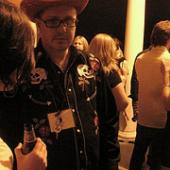Does workshopping a play really help it?
Editorial
Quite a few years ago, at a theater conference, I heard Mark Lamos, Artistic Director of the Westport Country Playhouse, declare that in his experience, no play has ever been improved by the workshopping progress.
This seemed a rather cheeky thing to say at a conference that was, fundamentally, a workshop for new plays, but nobody followed up on it. Perhaps they just thought, well, it’s one guy’s opinion. Although, in fairness, that guy is a Tony winner, was artistic director of Hartford Stage and has directed at the Public Theater, Lincoln Center, and the Guthrie. So he’s just not any guy. Or perhaps nobody wanted to entertain the possibility that the workshopping process, which has become fundamental to the creation of new plays, and which generates massive grant money for intuitions that support new plays, is really not that great a process.
I don’t have anywhere near Lamos’ experience. But I have participated in workshops for more than a decade, and had a dozen or so of my own plays go through a workshopping process. And, to an extent, I agree with Lamos --although I do think there is value in workshopping, which I will get too shortly. But let me start with my criticisms.
The workshopping process, as it is done now, developed in literary circles and has been moved, almost without changing it, to the world of performance. We do a staged reading, yes, but that will never give a sense of how a play will work onstage. Mostly, we respond to a play as a literary entity, but plays aren’t that. And we tend to look at a script as a flawed thing that can be fixed by literary fixes: by writing more, or better. But there is much about performance that defies language, and there is much about theater that works on the stage but not on the page.
Admittedly, there is a certain type of play that can benefit from the workshopping process. A well-made script, in the classical sense, can be helped. These plays are like little wind-up watches, and somebody with a good literary sense can offer suggestions for making the mechanisms work cleaner, and clearer. But, the truth is, I think a good play is generally going to be made better by actually getting it on its feet and performing it far more than by staging a reading and guessing at what may work and what may not. A play really benefits from a few productions that don’t quite work, far more than they benefit from a staged reading and some feedback.
And some plays are workshopped forever. I’ve seen plays that have been through dozens of workshops over a decade or more, and I think this isn’t especially productive. I suppose there are artists who can return again and again to the same play over years and years and years, and that this will be a valuable exercise. I don’t know many who can. It doesn’t take too long before we’re no longer the sort of person who would write what we once wrote. I could no more go back and revise an earlier play of mine than I could revise somebody else’s play. My interests have changed too much, my approach to theater has changed too much. I don’t need to fiddle with work I have already created, I need to make new work.
Another complaint I have with the process is the assumption that art is perfectible -- that it can be tweaked and teased and prodded, with the help of intelligent outsiders, until it is the very best play it can be. I am not convinced I believe this. Sometimes suggestions from others can be useful, when you’re up against a wall and you need some ideas for how to progress. But often they’re an imposition of somebody’s aesthetics upon your own. I once worked for a designer who would take her employees designs and completely redo them from scratch, insisting that the other designer had mucked up the project. She was confronted by one of her employees, a very good designer, who patiently tried to explain that she had simply come up with an alternative solution to a design question he had also solved. Further, her approach was simply different, not better. She responded with scorn: “If you can’t see that my design is better in every single way than your, I don’t know what to tell you.”
Admittedly, this is an extreme example. But it’s worth remembering that suggestions provided during the feedback part of a workshop are just other people offering their ideas of how to tell a story theatrically, and it should not be assumed that their suggestions are inherently better than yours.
There are, I should say, some plays that are just fundamentally broken. These certainly won’t benefit from workshopping. And some plays seem like rough drafts of the eventual play they will become, and it’s possible they will be helped through workshopping. But I think it is equally possible that the process adds in a lot of extraneous opinions when what the playwright really needs is to get the play up on its legs and see where it works and where it doesn’t, based on their own sense of what should work in a play and what shouldn’t, and based on whether an actual cast can produce the theatrical experience they are trying to create, and whether an audience responds in the way they envision.
That’s what’s really useful, although it means you’re asking a theater company to produce a play that still needs work. Tony Kusher did this with The Guthrie when he wrote “The Intelligent Homosexual's Guide to Capitalism and Socialism with a Key to the Scriptures” for the Guthrie, which he revised even as they were a week away from opening. Few theaters will be as patient with you as The Guthrie was with Kushner -- after all, most of us don’t have Pulitzers. But I think Kushner was right, that this is the way you make a play, and this is the way you know if it works or not. I don’t know if there is any way to get a commitment from theaters to approach new plays this way; I doubt it. In some ways, I think workshopping is a sort of hedge-betting, and one that actually makes money -- in the form of development grants -- for a theater, while producing a rough draft of a play might lose the company money, and keeping it in previews for a long time is expensive and tends to annoy critics, as has happened with the Spider Man musical. Which may be one of those plays that is fundamentally broken anyway.
But I mentioned that I think there is value to the workshopping process, and I think it is this: While it may not help any specific play, I think it can help a playwright. Plays themselves can only improve somewhat, but playwrights can improve immeasurably. I once saw Erik Ehn respond to a play with a magnificent investigation into the play’s themes, and his only comment was that the playwright should think about whether he wanted the play to be about ideas or about plot. If it was to be about plot, the playwright was forever going to be running down a twisting rabbit hole, and this might ultimately be futile. But the themes were there, and they were fascinating, and worth investigating.
Now, I don’t think this was especially useful advice for that specific play. As it was written, it was about plot, and was caught in that rabbit hole, and to recreate it as a theme piece would involve rewriting the whole play. But it’s enormously useful advice in writing the next play. It’s a question worth asking for any writer: Is this to be a play about plot?
I think the feedback we get from workshops might be a great benefit in this way: They may not do much for the play that has already been written, but, imperfect though the feedback may be, it offers a playwright plenty to chew on, and can profoundly affect the next play they write. And I think this is how I am going to approach workshops, when my work is being responded to, or when I respond to somebody else’s -- that the point of this is not to make a single play better, but to make a playwright better.
And “better” isn’t even the right word here, because it also assumes that a playwright is perfectible. No, not “better.” But richer, and more mature, and more in control of their tone, and their voice, and better able to tell the story they want to tell. I want to tell people “Don’t worry about this play. This play is written, and it is what it is. But, for your next play, I think what you may want to think about is this, or this, or this other thing.” I want to hear that. And then I can either take the advice, or reject it. Either way, it will have helped clarify my own thoughts about what I wish to do. And, better still, it will, one hopes, result in another play.




